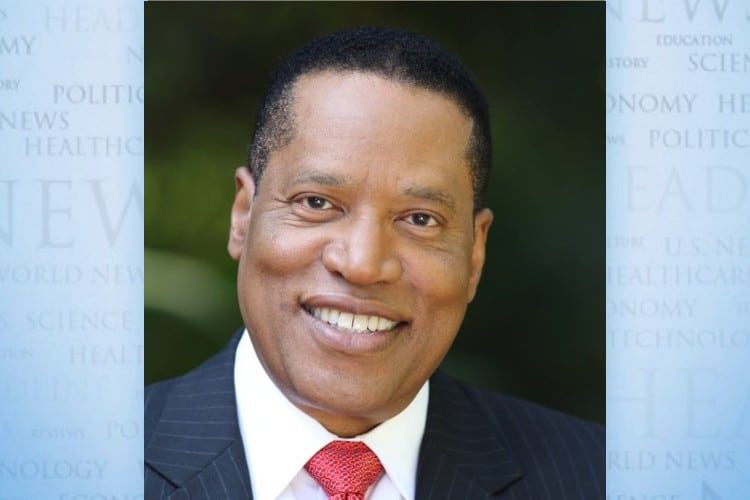
Supreme Court Justice Sonia Sotomayor, at a recent event with a liberal audience, praised Justice Clarence Thomas, her ideological adversary. Sotomayor said, “He is a man who cares deeply about the court as an institution.”
She added that while the two often disagree over judicial decisions, “We share a common understanding about people and kindness towards them.” As to Thomas’ “kindness,” Sotomayor elaborated: “Justice Thomas is the one justice in the building that literally knows every employee’s name, every one of them. And not only does he know their names, he remembers their families’ names and histories…. He’s the first one who will go up to someone when you’re walking with him and say, ‘Is your son okay? How’s your daughter doing in college?’ He’s the first one that, when my stepfather died, sent me flowers in Florida.”
Daniel R. Suhr, managing attorney at the Liberty Justice Center, a conservative public interest law firm, praised Sotomayor’s “courage.” He said: “I will give her deserved plaudits for saying something nice about her colleague when it would have been easy to keep her head down. That’s a good example for us all.”
Describing a simple statement of kindness about a Supreme Court colleague, with whom one has ideological differences, as an act of “courage” says a lot about where we stand today as a nation.
The late Supreme Court justices Ruth Bader Ginsburg, a liberal, and Antonin Scalia, a conservative, often attacked each other in Court decisions, yet they became close personal friends, sharing a love for opera; they often traveled and shopped for souvenirs together.
In the ’80s, conservative President Ronald Reagan battled over policy against Massachusetts Democratic House Speaker ‘Tip’ O’Neill. Reagan once compared O’Neill to Pac-Man, calling O’Neill “a round thing that gobbles up money.” O’Neill called Reagan “Herbert Hoover with a smile” and “a cheerleader for selfishness.” There is some dispute about whether they personally liked each other, but in O’Neill’s memoir he wrote that he advised Reagan that Democrats and Republicans “were always friends after 6 o’clock and on weekends.” O’Neill said: “Reagan would often begin our telephone discussions by saying, ‘Hello, Tip, is it after 6 o’clock?’ ‘Absolutely, Mr. President,’ I would respond.” O’Neill’s son said, “While neither man embraced the other’s worldview, each respected the other’s right to hold it. Each respected the other as a man.” Chris Matthews, later an MSNBC host, served as O’Neill’s press secretary. Matthews said: “Reagan was fond of Tip and completely believed that Tip wanted to help the little people. He just disagreed about how to do it.”
This brings us to today. Matthews, on his TV show, analyzed why then-President Donald Trump invited rapper Kanye West to the White House. Matthews said Trump did it to challenge the charge that Trump is “racist.” Matthews said, “White people won’t vote for a guy — most of them — if they think they’re racist.” So, it would be counterproductive for Trump to use, as critics claimed, “a racist dog whistle” to encourage whites to vote for him. America would never vote for a racist for president. And it would not be in Trump’s best interest to be perceived as one.
Yet a 2018 Associated Press-NORC Center for Public Affairs Research poll found that “85%” of Democrat adults consider Trump “racist.” Later that same year an Axios poll found that 61% of Democrats consider Republicans “racist/bigoted/sexist,” while 31% of Republicans feel that way about Democrats.
President Joe Biden recently accused Trump voters of embracing “semi-fascism.” Semi-fascism?! But Joan Walsh, national affairs correspondent for hard-left The Nation magazine, said: “If people aren’t talking about you, then don’t answer. … If you’re not a fascist, he’s not talking about you. So, lighten up. But don’t take it personally.”
Pundits did not applaud Ginsburg and Scalia or Reagan and O’Neill for their “courageous” friendships. Why would they? Isn’t it — or wasn’t it — possible to have firmly held beliefs yet maintain friendships with those who strongly disagree?
But it’s rather difficult to befriend a “semi-fascist,” isn’t it?
Larry Elder is a best-selling author and nationally syndicated radio talk-show host. To find out more about Larry Elder, or become an “Elderado,” visit www.LarryElder.com. Follow Larry on Twitter @larryelder. To read features by other Creators Syndicate writers and cartoonists, visit the Creators Syndicate webpage at www.creators.com.
COPYRIGHT 2022 LAURENCE A. ELDER
DISTRIBUTED BY CREATORS.COM


